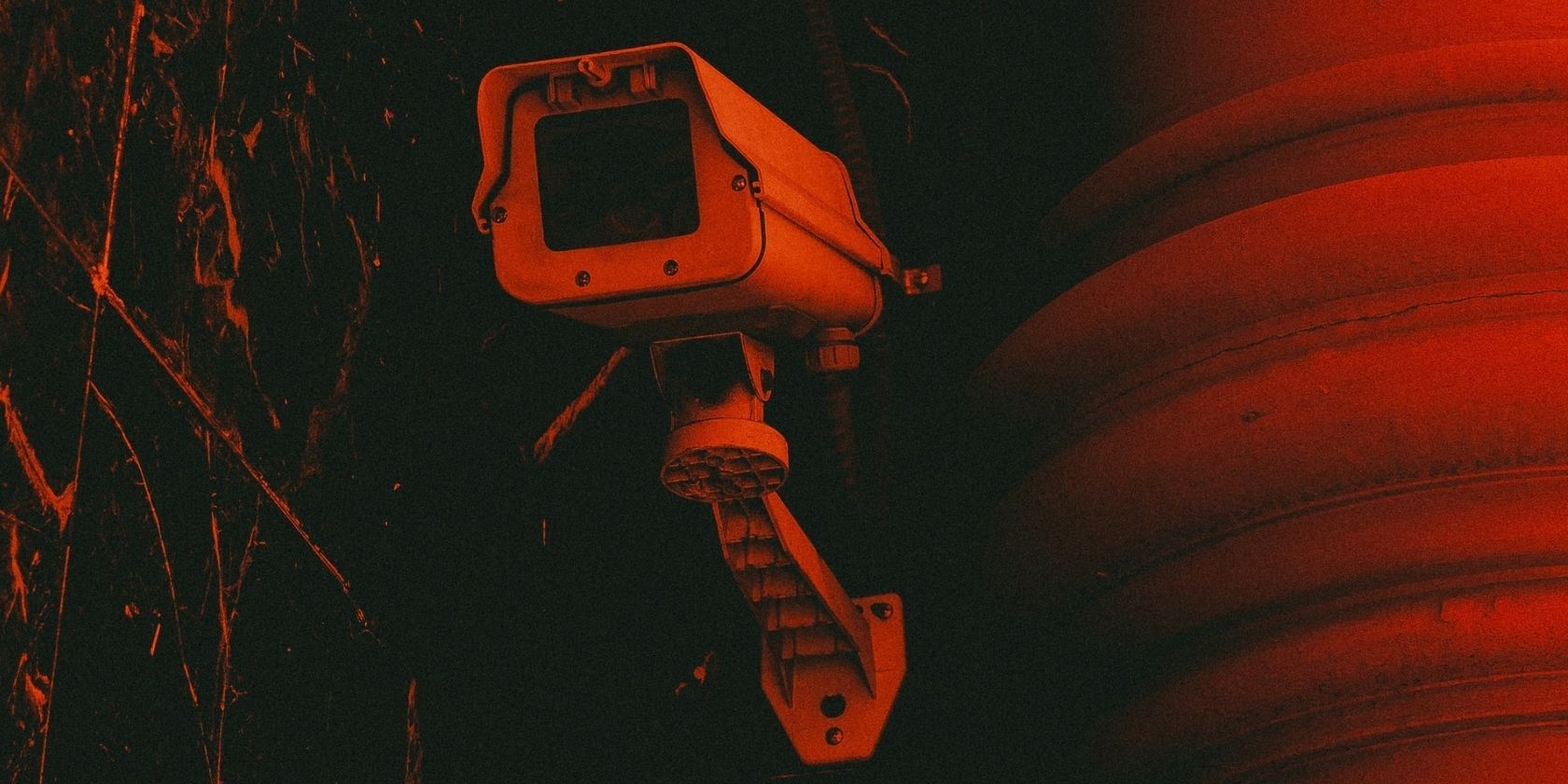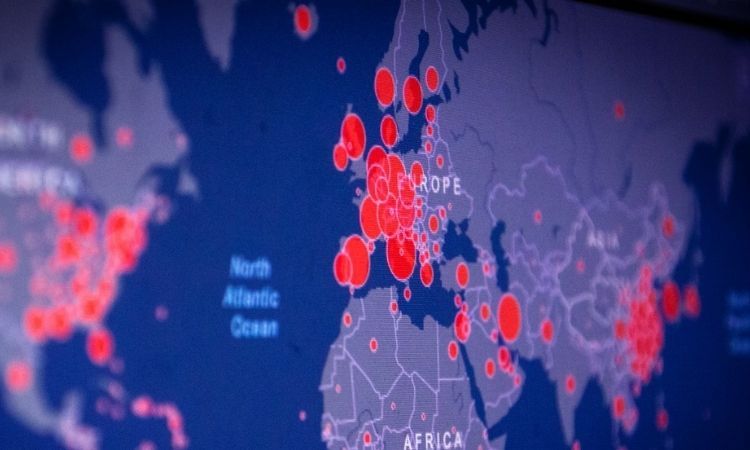When people use the internet, some information gets collected about them and used for marketing purposes. However, you might also wonder whether federal agencies could breach constitutional boundaries and spy on citizens.
Is the government spying on us? If so, what are its reasons and which techniques does it use?
Can the Government Spy on Your Phone?
Even people who take great care to safeguard their privacy are surprised at how difficult it is to succeed in that aim. Remember the last app you downloaded and the numerous permissions it likely required to complete the installation and provide a full feature set.
Data brokers collect and sell data to help marketing teams target specific groups and provide them with maximally relevant content. Most people know that’s a consequence of using the internet.
However, they may not realize US government agencies are among the buyers of that content. News broke in 2020 that the Drug Enforcement Agency spent $25,000 for smartphone records sold by a company called Venntel two years prior.
Plus, when smartphones have location data enabled, it’s possible to make educated assumptions about a person’s behaviors based on how their gadget moves. For example, if an individual regularly travels to a retail store and stays for eight hours, they probably work there.
And a US Department of Homeland Security (DHS) representative confirmed to Reuters that the agency was exploring ways to track suspected domestic terrorists. The spokesperson did not detail the specific methods but said:
“Domestic violent extremism poses the most lethal, persistent terrorism-related threat to our homeland today. DHS is committed to improving security and is reviewing options for enhancing screening and vetting protocols and travel pattern analyses, consistent with privacy, civil rights, and civil liberties.”
Most people have their phones within reach at all times, and they often use social platforms to keep others in the loop about their travels. So using smartphones as starting points could provide a broad reach.
Is the Government Spying on Us Through Social Media?
When you consider your Facebook profile or presence on another popular social site, you'll probably conclude that it could be a treasure trove of information for outside parties to discover.
The content probably has details about your work, hobbies, pets, families, and favorite movies. You may also use the profile to sound off about topics sometimes deemed controversial.
Facebook has repeatedly denied that it spies on its users, although suspicions remain. It does collaborate with governments, though.
For example, the company took issue with a widely circulated claim that 12 people publish 73 percent of the misleading content about COVID-19 vaccines. The company confirmed that it works with “external experts and governments” to curb misinformation.
In the UK, Home Office representatives urged Facebook not to introduce end-to-end encryption on Messenger and Facebook. They warn that doing so could interfere with 12 million potential child abuse reports, due to the encrypted content being too difficult to decipher.
That suggests government agencies want to continue spying on parties if evidence suggests they participate in unlawful activities.
No matter what an investigator determines, they generally use a systematic approach to arrive at a previously unknown truth. However, social media often makes it easy to find details without much digging, mainly if someone leaves profile information publicly accessible.
Police also monitor social media by impersonating others, often to gain entry to private online groups.
Does the Government Watch Our Daily Activities?
Many often wonder how long it’d take them to realize that the government was spying on them if it happened. A lack of transparency is one of the main reasons why.
Government bodies have a long history of surveillance abuse, which understandably causes doubt. Even if agencies don’t spy in a certain way now, would representatives tell the public if that changed?
Organizations Regularly Use Spying Software
It’s even easier to commit such abuses of power considering how many ways people frequently produce and give away their data. For example, workplaces and schools often use legal spyware to monitor occupants as they browse the internet.
It makes sense that government employers might do the same to ensure their workforces don’t waste time or visit questionable sites. That’s especially likely for people in high-profile roles who could cause national scandals with undesirable behavior.
The Irish Government Collected Data to Check COVID-19 Compliance
Gathering data in the interest of public health also occurs at the government level. Ireland had COVID-19 restrictions for much of 2020 and part of 2021 requiring people to stay within 10 kilometers of their homes unless traveling for a reason stated by the government as essential.
Mobility statistics provided by a telecommunications company to national officials was published online to show which areas had the most residents abiding by the rules. The anonymized and aggregated data did not identify individuals, but this is a real-life example of recent government tracking.
Data and Tracking Could Curb Immigration Plans
Many people who intend to immigrate to another country spend years planning that event. However, some seemingly innocent activities may raise the alarm in border patrol officials.
In one instance, officials stopped a Palestinian teen at the border when he attempted to enter on a student visa to attend Harvard University. The authorities allegedly searched his phone and barred him based on social media posts created by the student’s friends.
The rise of at-home DNA testing also poses possible concerns. 23andMe has partnerships with Airbnb and GlaxoSmithKline to share genetic data with those companies. That happens with user consent, but it’s easy to imagine why governments might want that information, too.
For example, the United States and Canada are two of the many countries that require some people to pass medical examinations before receiving certain visas. DNA tests show someone’s potential risk of developing a medical condition or seeing it in their offspring.
The practice isn’t typical yet, but it’s not a stretch to think that some of the world’s governments with especially tough immigration stances might eventually require candidates to send genetic data with their other paperwork.
In 2019, people raised concerns about the US government’s plans to collect it from immigrants detained in federal facilities. Evidence also shows that government officials used social media and data brokers to watch immigrants once they entered the country, including a man arrested by federal authorities after he “checked in” at a Home Depot on Facebook.
Increasingly Blurred Lines
People often say that individuals have nothing to fear if they have nothing to hide. However, it’s not so clear-cut. The world's governments spy on some residents and does not always restrict the activity to people with confirmed involvement in criminal activities.
However, there’s no need to get paranoid about that reality. Learning about how and why an app or site uses your data is an excellent step to take when deciding whether you want to interact with it.
Similarly, if a government agency, employer, school, or other agency requests your data, get the details about the intended purpose before proceeding. Taking those precautions can protect your privacy and limit unwanted activities associated with your details.


.jpg)

